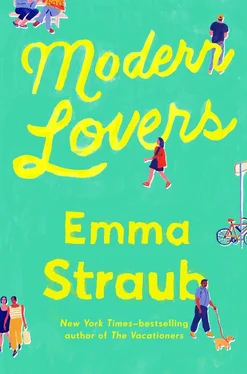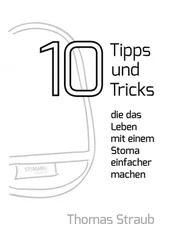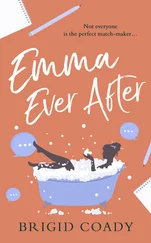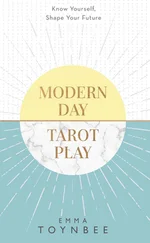“It’s not about instruction,” Dave said. “It’s just about feeling it, you know? The wave, the vibe. That’s what surfing is all about. The ocean tells you when it’s your time, and then you go.”
“Right,” Andrew said.
Nearby, a surfing school was teaching lessons, and three girls in matching wet-suit tops and bikini bottoms giggled as they watched one another slide off their boards and into the shallow water. A large wave began to roll in, and Dave nodded at it, squinting. “That’s mine,” he said, and began to paddle. He was on his feet in another minute, his back flexing as he shifted his weight.
Andrew was on his stomach, bobbing up and down with the waves. August had come so quickly this year — the city was empty, but the beaches were full, dotted with people young and old. Andrew wished he’d taken Harry to the beach more as a kid — they went every so often, maybe once or twice a summer, but that was it. It struck him as a grand injustice, a wrong he had done. The kids playing on the sand were digging holes, they were building castles with plastic buckets. Harry was just like Elizabeth, prone to indoor activities, and Andrew thought it was all his fault for not intervening. They’d never gone camping without a car. They’d never driven a Winnebago. They’d never gone down a zip line or made a bonfire. Andrew wanted to cry, thinking of all the things he’d deprived his son of, just because he hadn’t thought to do them. Up ahead, Dave had easily coasted all the way to the sand. The water was shallow, and by the time Dave reached the beach, he was just skimming the ground like he was on a giant skateboard, which he sort of was, more or less. It looked so easy. Dave was probably thirty-five, and Andrew wondered if he’d ever been married or if he had any kids. He surely would have mentioned a kid, unless it had been in some seriously bad situation and they weren’t in touch, and Andrew couldn’t imagine that being the case. Dave seemed like a bachelor, in a good way. Unencumbered.
A slightly bigger wave rolled out from underneath him, and Andrew pushed himself up so that he was straddling the board again, his legs dangling in the water on either side. Dave waved from the beach and shouted something that Andrew couldn’t hear. He turned around to see what was coming — surfing was sort of like fishing in a lake, lots of waiting and watching, only with an increased likelihood of drowning. There was a wave coming, and Andrew decided to paddle. He flopped back onto his stomach too quickly, and it stung, but he didn’t have time to think about it — he started to paddle and paddle with his head and chest up, just like in yoga class, until the wave was underneath him and the board was doing what it was supposed to — keeping him and the wave apart. For a second, Andrew was doing it — he dragged his feet to a low crouch and then pushed himself up to stand, almost. His knees were bent and his arms were out. He felt like Philippe Petit walking between the Twin Towers. Andrew wanted to look for Dave and give a thumbs-up or a wave, but he knew that if he did, he would fall. But then he started to fall anyway, and as he was falling off to the left side of the board, Andrew looked toward the beach and thought he saw Harry and Ruby standing just behind Dave, her big curly hair wound up like a ball of yarn on top of her head. But then he hit the water, and he went for a short ride in the Atlantic Ocean washing machine, and when his head popped back up, they were gone. Andrew grabbed the board and used it to kick the rest of the way to the sand.
“You totally had it,” Dave said, offering Andrew a hand. “Next time will be even better.”
“I thought I just saw my kid,” Andrew said, looking around the beach. There were tons of young people on the sand, lying around with supermarket gossip magazines and cheap beach umbrellas, but he didn’t see Harry. “I swear, he was just standing right behind you.”
“Like a vision,” Dave said, nodding. “Far out.”
“No, I mean, he was standing there, right there!” Andrew pointed, as if the sand would offer a map.
“I get it,” Dave said, his mouth flat, his eyes blank. So there it was — he didn’t have kids, Andrew could tell. He was looking back at the water, his board sticking straight up toward the cloudless sky overhead. “Want to try again?”
“Sure,” Andrew said. He took one last sweep of the beach, looking for Ruby’s hair, but still didn’t see them. She was trouble, just like her mother, and Andrew was tired of pretending not to care. “Let’s do it,” he said, and threw his board back into the water, forgetting that it was still attached to his leg, which made him stumble and fall in the low, foamy surf.
“It’s cool,” Dave said. “You’re getting the hang of it already.”
Andrew was embarrassed but didn’t let it show. “Let’s go again.”
Elizabeth sat on the porch, sweating. She had an appointment that afternoon with a couple from Carroll Gardens who wanted a house in the neighborhood — they had a three-year-old daughter and were pregnant with another. Zoe’s house was exactly what they were looking for — big enough for all the people in their family but shabby enough that they could afford it. Deirdre had a listing for a house on Ditmas Avenue, but Elizabeth knew they wanted to be closer to the park than that. A few blocks made all the difference, sometimes — it wasn’t unusual to have clients who gave you exact borders that they were looking within — sometimes it had to do with school zones, but sometimes it was just personal preference. If Elizabeth ever moved, she would want an apartment on Commerce or Grove or Bedford in the West Village, a tiny little tangle of streets. Not that she wanted to move — it was just a professional hazard, seeing how other people lived their lives and measuring against your own. She also didn’t really want to sell Zoe’s house — it would mean that Zoe was actually leaving the neighborhood, and if they weren’t neighbors, what would that mean? Would she regularly text her for a last-minute dinner date? Not that Zoe had responded positively lately — though of course they were sorting through a lot, what with the fire and everything. Sometimes excuses weren’t excuses. If Zoe moved, would they sit on each other’s porches and drink wine? How often would Zoe get on the subway for her? She didn’t want to have to find out.
Elizabeth was sitting on the porch because Zoe was avoiding her — she wasn’t responding to e-mails and texts, as if Elizabeth didn’t know that she’d seen them. Sometimes she longed for the olden days, when you had no idea whether anyone had listened to your message, or that you’d called them six times in one day. Elizabeth wasn’t trying to be a stalker; she actually needed to talk to her. She promised her clients that she’d ask about the likelihood of the house coming on the market, but even more than that, she wanted to know about Jane. Of course, it was all the same conversation, and one that Zoe was clearly trying to avoid. But being neighbors in addition to friends meant that Elizabeth knew when Zoe and Bingo were going to take their late-morning walk, and it wasn’t breaking any kind of protocol to be sitting on her own porch at that same time, was it?
She saw Bingo first — his happy mouth open, with his leash dragging behind him on the sidewalk. Dogs were gloriously uncomplicated creatures — food and play and sleep and love, that was all they needed. People were so much worse. Zoe was a few yards behind Bingo, looking at her phone.
“Hey,” Elizabeth said, coming down her steps.
“Oh, hi, I was just about to call you back,” Zoe said, and tucked her phone into her back pocket. “Hold up, Bing.” She bent over and picked up the end of the leash.
Читать дальше












